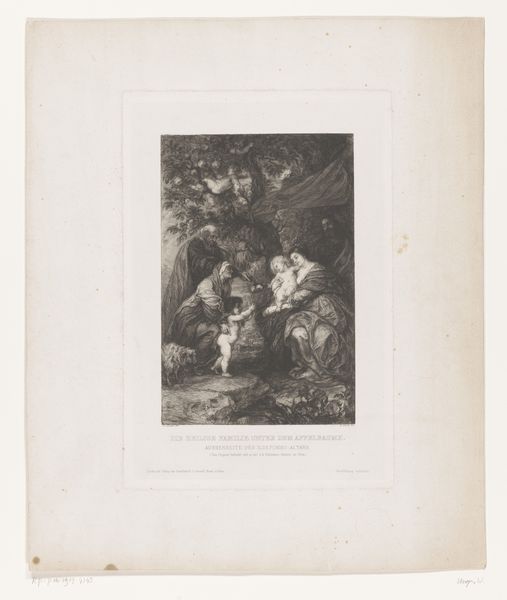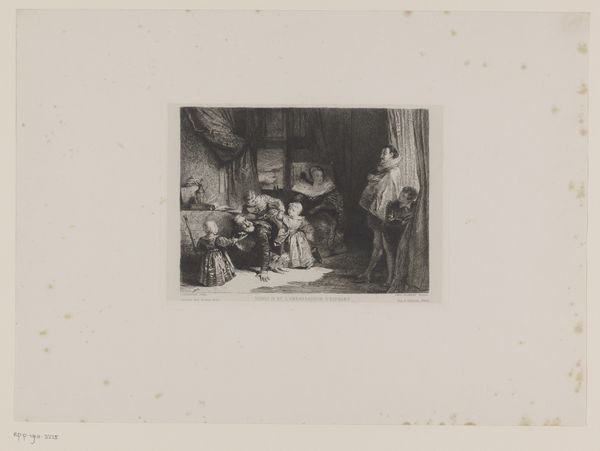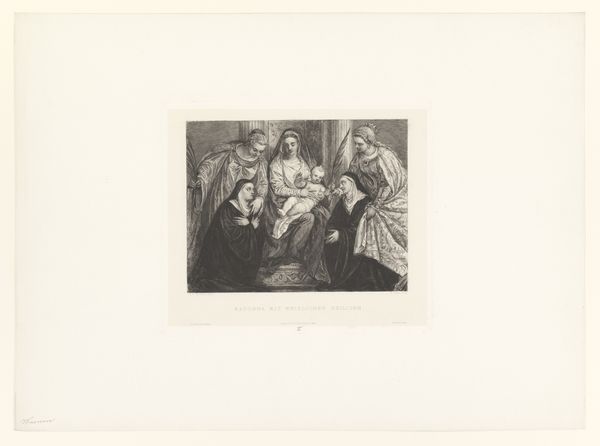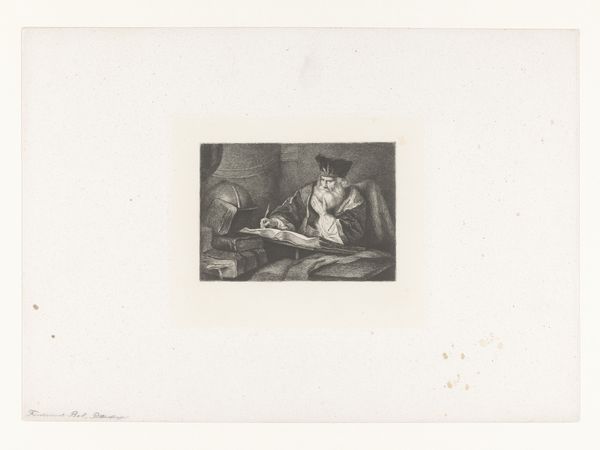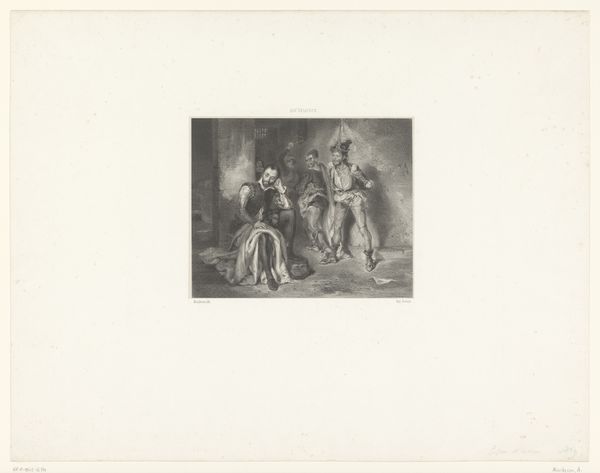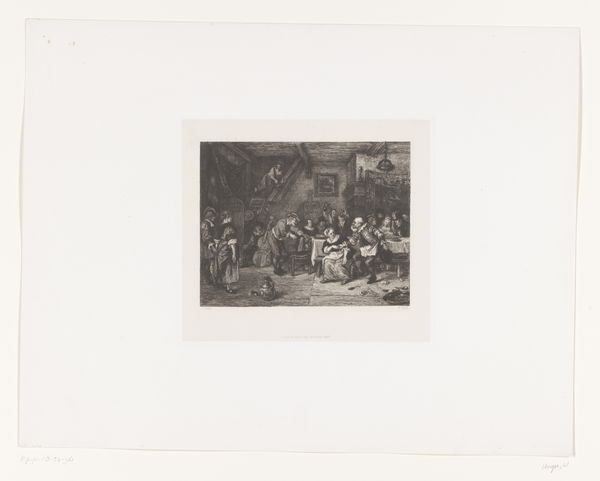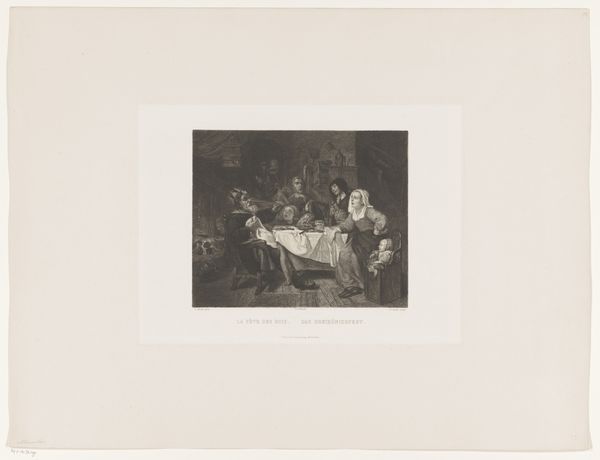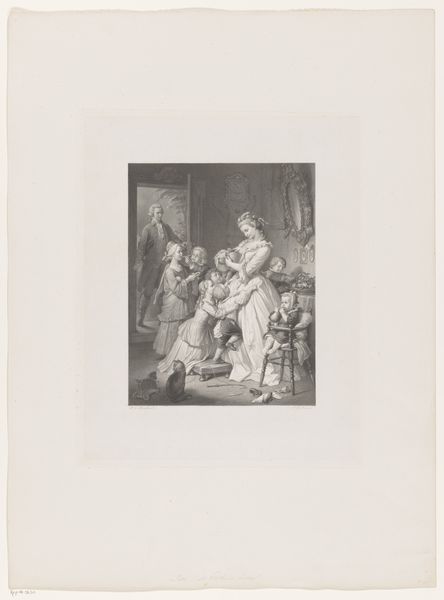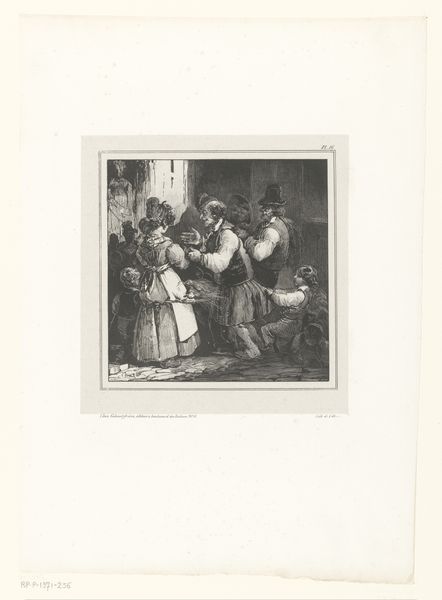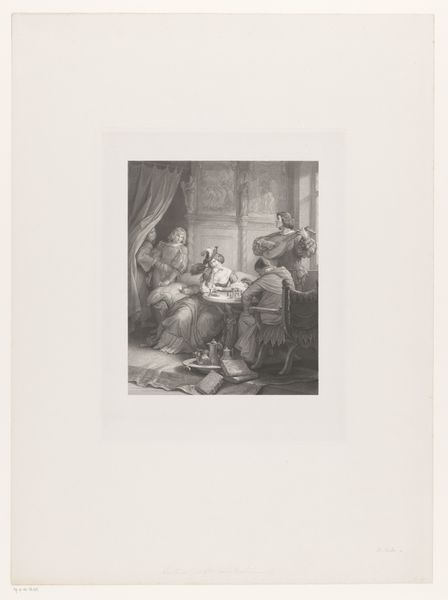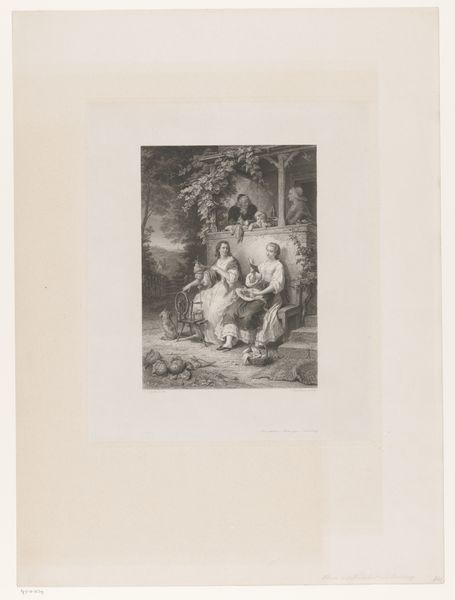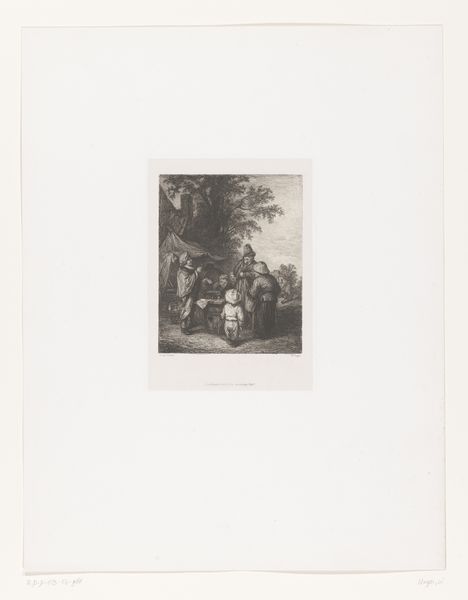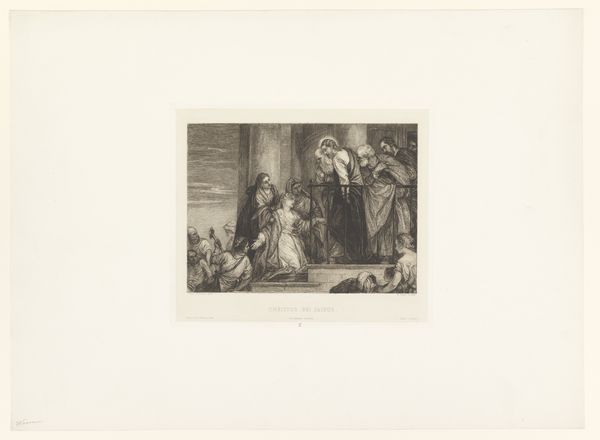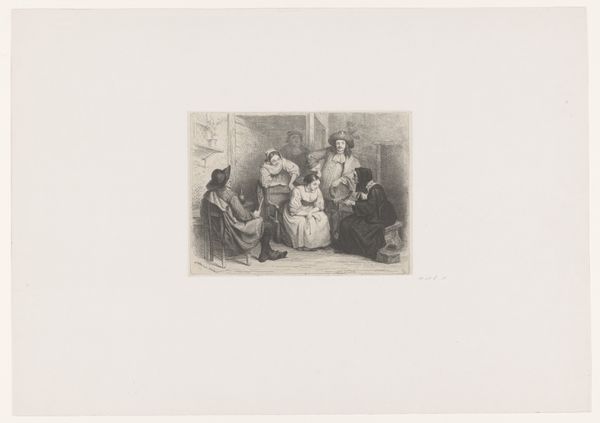
drawing, print, etching, ink
#
portrait
#
drawing
#
narrative-art
# print
#
etching
#
figuration
#
ink
#
group-portraits
Dimensions: height 239 mm, width 273 mm
Copyright: Rijks Museum: Open Domain
Curator: What we have here is William Unger’s print “Isaak zegent Jakob,” which translates to Isaac Blessing Jacob, created between 1847 and 1889. My first impression is… drama! Such a dark scene. What a moody interpretation. Editor: Absolutely! This print powerfully captures the biblical story, steeped in deception and inheritance. I can't help but think about the patriarchal power structures at play. Jacob, aided by his mother, deceives his blind father Isaac to steal the blessing meant for his brother Esau. It really speaks to the way social and religious hierarchies can be manipulated, doesn't it? Curator: Definitely. There's such intensity in their faces. Old Isaac looks so frail and vulnerable, caught in a pivotal moment of transferring power, like the weight of generations resting on his shaking hands. You almost pity him, but it is offset by an equal distaste of Jacob being shifty and manipulative, trying to steal that inheritance that’s not his to begin with! And William Unger certainly knew how to render skin, fabrics... all so richly textured. Editor: Agreed. Unger masterfully used the etching technique to create those intricate details, the play of light and shadow adding layers of complexity. It's also interesting to consider the visual language itself: the costuming indicates a very specific time period. Who gets to decide whose culture is portrayed—who does Jacob become in this re-telling? Curator: True. Art always refracts its origins. And this print has a powerful emotional pull for me, the sense of an intimate domestic moment gone awry, twisting family bonds through this… ambitious greed? Is it really worth the outcome? It is interesting how we can apply contemporary theories or lens to an artwork with this scene’s rich art history. Editor: And that is precisely the power of engaging with art! Whether you’re reflecting on family dynamics, legacies of injustice, or questions of identity and representation. Curator: Agreed. What a thought-provoking, somewhat uneasy depiction! I'll certainly leave this etching with even more questions, it offers plenty to consider. Editor: A brilliant visualization that provokes continued engagement and reevaluation, from its historical context to our present moment.
Comments
No comments
Be the first to comment and join the conversation on the ultimate creative platform.
